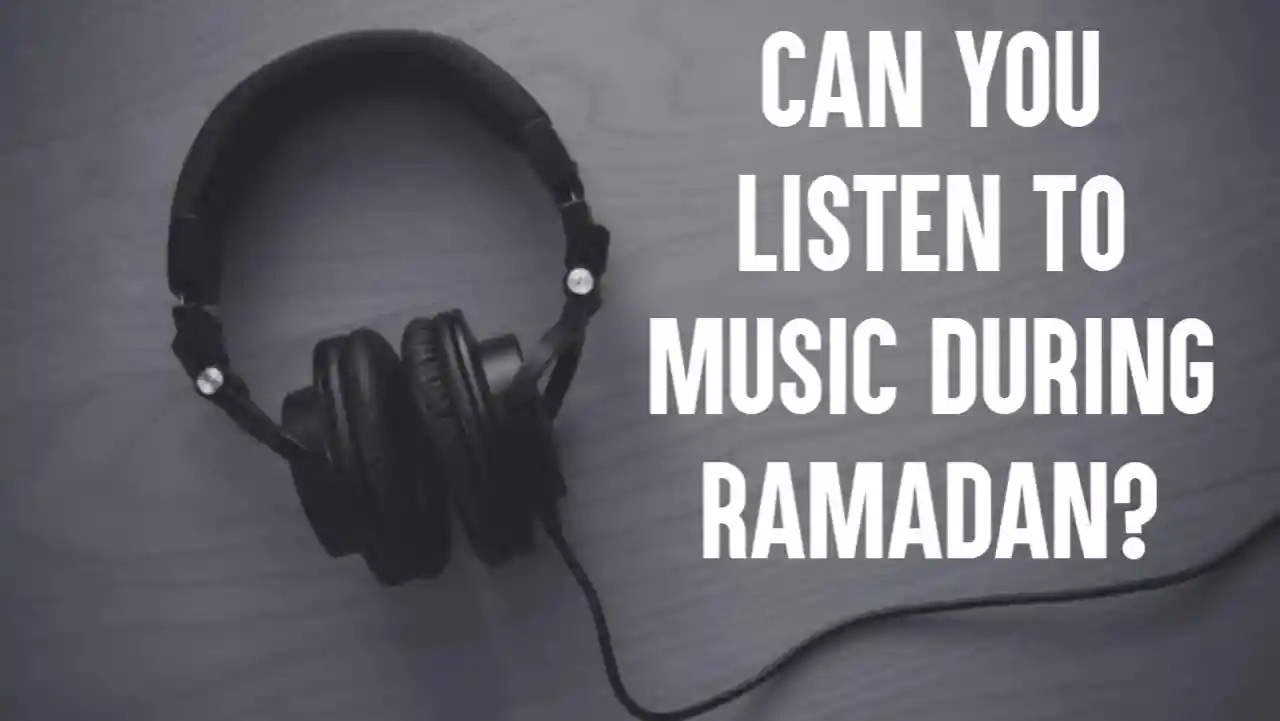Can You Listen To Music During Ramadan? Quick Facts
Advertisements
Can you listen to music during Ramadan? Ramadan is a month of spiritual reflection and fasting for Muslims around the world. During this time, many people abstain from food and drink during the day, and engage in additional prayers and acts of charity.
One question that often arises during Ramadan is whether or not it is permissible to listen to music.
In this blog post, we will explore the Islamic perspective on music during Ramadan, and provide some guidance on how to reconcile the desire to listen to music with the spiritual goals of the month.
Whether you’re a practicing Muslim looking for guidance, or simply curious about the customs of Ramadan, this post will provide some valuable insights.
Can You Listen To Music During Ramadan?
No, you can’t listen to music during Ramadan. Regardless of the time of year, listening to music is haram and prohibited and is a greater sin during Ramadan than at other times. Fasting does not only mean refraining from eating and drinking, rather it means attaining piety or fear of Allah, and it means that all the physical faculties should refrain from disobeying Allah.
Advertisements
Why Can’t You Listen To Music During Ramadan?
Allah has prescribed fasting for great reasons. One of the most important of these reasons and one of the greatest purposes achieved by the fast is so that we may attain piety (taqwa), as Allah says (interpretation of the meaning):
“O you who believe! Observing As-Sawm (the fasting) is prescribed for you as it was prescribed for those before you, that you may become Al-Muttaqoon (the pious)”
Surah al-Baqarah :183
Taqwa or piety means obeying that which Allah has commanded and avoiding that which He has forbidden.
The person who is fasting is commanded to do acts of worship and obedience, and he is forbidden to do haram things.
Sins are bad enough when committed by anyone, but they are even worse when committed by one who is fasting. Hence the Prophet (peace and blessings of Allaah be upon him) said:
“Whoever does not give up false speech and acting in accordance with it, and ignorant conduct, Allaah has no need of him giving up his food and drink.”
Narrated by al-Bukhaari, 6057.
Ibn Khuzaymah, Ibn Hibaan and al-Haakim narrated that Abu Hurayrah (may Allaah be pleased with him) said: The Messenger of Allaah (peace and blessings of Allaah be upon him) said:
Advertisements
“Fasting does not just mean giving up food and drink, rather fasting also means giving up idle and obscene talk.”
Classed as saheeh by al-Albaani in Saheeh al-Targheeb wa’l-Tarheeb, 1082.
‘Umar ibn al-Khattaab and ‘Ali ibn Abi Taalib (may Allaah be pleased with them) said: Fasting does not just mean giving up food and drink; it also means giving up lies, falsehood and idle talk.
Jaabir ibn ‘Abd-Allaah said: If you fast, then block your ears, eyes and tongue from lies and sin; do not abuse your servants; be tranquil and dignified on the day of your fast; do not let the day when you do not fast and the day when you fast be the same.
It was narrated that Taleeq ibn Qays said: Abu Dharr said: When you fast then be careful as much as you can. When Taleeq was fasting he would enter his house and only come out to pray.
When Abu Hurayrah and his companions (may Allaah be pleased with them) fasted, they would stay in the mosque and say, “We are keeping our fast pure.”
One of the scholars said:
The person who is fasting must fast with his eyes and not look at anything that is not permissible; with his ears and not listen to anything that is not permissible; with his tongue and not speak any obscene words or slander any one or tell lies or backbite.
The believer should make the most of this blessed month in which the devils are chained up, the gates of Paradise are opened and the gates of Hell are closed, and a caller cries out, “O seeker of good, go ahead; O seeker of evil, desist!”
The believer should make the most of this month so that he may draw closer to Allaah, repent sincerely from all his sins and make a pledge to Allaah to adhere to His religion and laws.

Does Listening To Music Break Your Fast Ramadan?
No, listening to music does not break your fast in Ramadan. Sin (including listening to music) detracts from the reward of fasting. So the more the fasting person sins, and the more grievous his sins, the more it detracts from the reward of his fas, and he may lose the reward altogether.
Thus he will have deprived himself of food and drink, and all other things that break the fast, and will also have deprived himself of the reward for that, by disobeying Allah.
Hence the Prophet (blessings and peace of Allah be upon him) said:
“There may be someone who fasts and gets nothing from his fast except hunger, and there may be someone who prays qiyaam and gets nothing from his qiyaam but a sleepless night.”
Narrated by Ibn Maajah (1690); classed as saheeh by al-Albaani in Saheeh Ibn Maajah.
With regard to whether the fast is invalidated by committing sins, including listening to music, fasting is not invalidated by that;
Rather it is valid and the fasting person has discharged his duty and is not required to make it up, but his reward is reduced because of his committing sin, and the reward may even be lost altogether, as noted above.

Can You Listen To Instrumental Music During Ramadan?
No, you can’t listen to instrumental music during Ramadan because it’s haram. The sahih Sunnah of the Prophet (peace and blessings of Allah be upon him) clearly indicates that listening to musical instruments is haram.
Al-Bukhari narrated in a mu’allaq report that the Prophet (peace and blessings of Allah be upon him) said:
“There will be among my ummah people who regard adultery, silk, pork and musical instruments as permissible…”
Al-Tabarani and al-Bayhaqi said that this was a mawsul report.
Why Are Musical Instruments Haram?
This hadith indicates that musical instruments are haram in two ways:
The Prophet (peace and blessings of Allah be upon him) said, “[they] will regard… as permissible.” This clearly indicates that the things mentioned are haram, but those people will regard them as permissible.
Musical instruments are mentioned in conjunction with things that are definitely haram, namely adultery (zina) and alcohol. If it were not haram it would not have been mentioned alongside them. (See al-Silsilah al-Sahihah by al-Albani , hadith no. 91)
You should make the most of this blessed month and turn to your Lord. You should repent to Allah and give up haram things that you were in the habit of doing before Ramadan, so that Allah might accept your fast and set your affairs straight.
Adopted from IslamQA.
May Allah accept our good deeds. And Allah knows best.
- You may also like other articles:
- Are Nerds Halal?
- Is Locust Halal?
Advertisements







